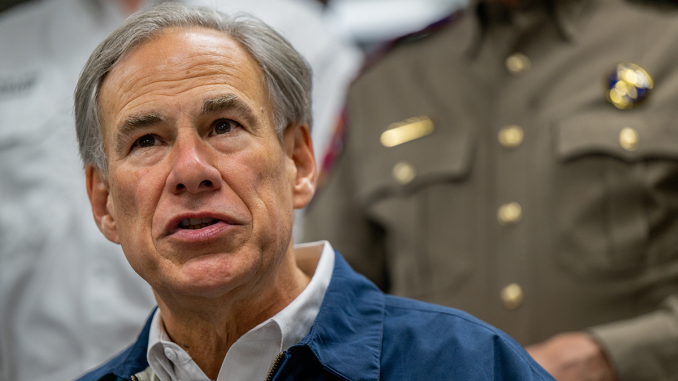
Texas Gov. Greg Abbott has announced that state agencies will ban the popular, Chinese-owned social media app TikTok on both state-issued and personal devices used by state employees.
“The security risks associated with the use of TikTok on devices used to conduct the important business of our state must not be underestimated or ignored,” Abbott, a Republican, said in a press release Monday.
“Owned by a Chinese company that employs Chinese Communist Party members, TikTok harvests significant amounts of data from a user’s device, including details about a user’s internet activity,” the governor said.
Abbott continued:
Other prohibited technologies listed in the statewide model plan also produce a similar threat to the security of Texans. It is critical that state agencies and employees are protected from the vulnerabilities presented by the use of this app and other prohibited technologies as they work on behalf of their fellow Texans.
I thank the Texas Department of Public Safety and Texas Department of Information Resources for their hard work helping safeguard the state’s sensitive information and critical infrastructure from potential threats posed by hostile foreign actors
The Republican governor laid out a “model security plan for prohibited technologies” with five objectives applying “to all state agencies and institutions of higher education (IHEs), including their employees, contractors, interns, or any users of state-owned networks.”
Feb. 15 is the deadline for each state agency “to implement its own policy to enforce this statewide plan,” the press release says.
Here are the five objectives:
- Ban and prevent the download or use of prohibited technologies on any state-issued device. This includes all state-issued cell phones, laptops, tablets, desktop computers, and other devices capable of internet connectivity. Each agency’s IT department must strictly enforce this ban.
- Prohibit employees or contractors from conducting state business on prohibited technology-enabled personal devices.
- Identify sensitive locations, meetings, or personnel within an agency that could be exposed to prohibited technology-enabled personal devices. Such devices must not be allowed into or used in these sensitive areas.
- Implement network-based restrictions to prevent the use of prohibited technologies on agency networks by any device.
- Coordinate incorporation into the plan of other technology providers as necessary, including any apps, services, hardware, or software that pose a threat to the state’s sensitive information and critical infrastructure.
Abbott signed letters dated Dec. 7 to Texas House Speaker Dade Phelan and Lt. Gov. Dan Patrick and to agency leaders, highlighting the state government’s “responsibility to preserve the safety and cybersecurity of Texans, in addition to the federal government’s responsibility for foreign-policy issues,” according to a press release at the time.
South Carolina, Maryland, Nebraska, and South Dakota are among states led by Democrats and Republicans alike that have taken similar action to ban Chinese-owned TikTok on some or all state-issued devices and networks, The Daily Signal previously reported.
“State governors and legislatures are pressing ahead with bans of TikTok based on nothing more than the hypothetical concerns they’ve heard on the news,” Jamal Brown, a TikTok spokesperson, told The Daily Signal in an email. Brown added:
We can understand why state lawmakers wouldn’t want state employees to have entertainment apps on their work devices for personal use, but singling out TikTok on all state devices and networks does nothing to improve security.
All it does is prevent state universities, health agencies, economic development agencies, and others needing to share information publicly from reaching their constituents on a platform loved by millions of Americans.
Shou Zi Chew, TikTok’s chief executive officer, is scheduled to testify March 23 before the House Energy and Commerce Committee led by Rep. Cathy McMorris Rodgers, R-Wash., Reuters reported.
The House Foreign Affairs Committee expects to vote this month on a bill proposed by Chairman Michael McCaul, R-Texas, to give the White House necessary legal tools to ban the popular app over national security concerns, Reuters reported earlier.
Have an opinion about this article? To sound off, please emailletters@DailySignal.com and we’ll consider publishing your edited remarks in our regular “We Hear You” feature. Remember to include the url or headline of the article plus your name and town and/or state.

